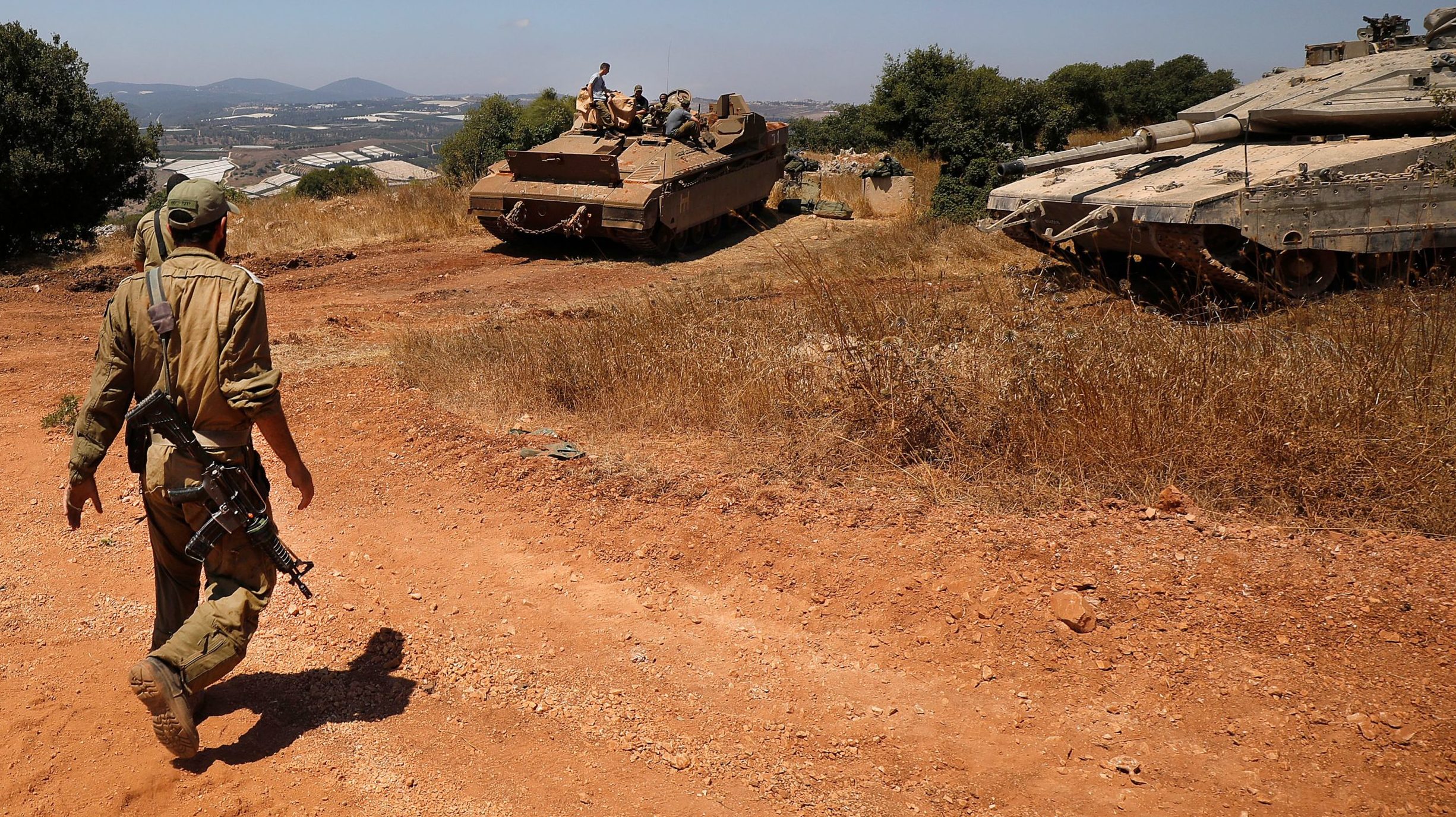Israel Braces for Hizbullah Retaliation over Slain Militiaman
Group blames Jewish state for airstrike against Iranian target in Syria that killed Ali Kamel Mohsen
Israel placed its northern towns and villages on alert Thursday and abruptly mobilized an army battalion at the border with Lebanon in case of an attack by Hizbullah.
The heightened state of alert and cancelation of a planned infantry-naval exercise in northern Israel follows implied threats made by the Lebanese movement and militia.
Considered a terrorist organization by Israel and the United States, Hizbullah reportedly intends to avenge the death of one of its soldiers, Ali Kamel Mohsen, who was killed in an airstrike south of Damascus earlier this week – an attack it blames on Israel.
The group published a short video Wednesday in which its troops are shown preparing to launch rockets at Israeli targets. The hint followed reports in the Lebanese media to the same effect.
While Jerusalem has not officially taken responsibility for the strike, it is widely believed that, like similar operations against Iranian military sites in Syria and Lebanon in recent years, it was the Israeli Air Force’s doing.
Though tensions seem to be at a simmering point along the border, the prospect of an all-out conflict between Israel and Hizbullah seems highly unlikely, according to prevailing assumptions in both countries.
“Up till now, the rules were simple: If Israel violates Lebanon’s sovereignty, there’s a response,” says Orna Mizrahi, a senior research fellow at the Institute for National Security Studies in Tel Aviv and a former deputy national security adviser for foreign policy.
“But for the past six months, Hizbullah has been trying to implement new rules: If an operative of the organization is killed by attacks attributed to Israel even outside Lebanon, they’ll respond militarily. That’s why the concern,” she said, citing Israeli decision-makers.
Mizrahi says that while Hizbullah did not directly threaten retaliation, its public acknowledgement that the soldier was killed amounts to the same thing.
“They want to keep it vague because in the current circumstance, with inner tensions and protests [over a failed Lebanese economy] and outside financial pressure and sanctions [by the US and Europe], they don’t want to be drawn into a large campaign with Israel,” she said.
Mizrahi acknowledges that some Middle Eastern analysts claim the opposite.
“There’s a theory that a prolonged fight with Israel is exactly what they want in order to redirect the attention and anger and criticism of the Lebanese public away from themselves and onto the Israeli enemy,” she says, adding that she disagrees.
“If they could do something contained that would not lead to an escalation but still assert their presence and deterrence, they would. I assume that’s what they’re considering right now,” she explained.
If they could do something contained that would not lead to an escalation but still assert their presence and deterrence, they would. I assume that’s what they’re considering right now
“A violent response is not a sure thing and it certainly doesn’t have to be along the border,” Mizrahi continued.
“That’s a pretty explosive area that can devolve into open conflict quickly,” she noted. “They could instead elect to perform some sort of attack abroad on Israeli or Jewish targets, but that’s also highly unlikely.”
Hasan Merhej, a television analyst on Hizbullah, Lebanon and the Middle East, agrees that the situation is unclear although he is certain that retaliation will come.
“A response by Hizbullah is a certainty,” he asserted to The Media Line, saying that sources close to the organization had given interviews in the past few days that all but guaranteed such an outcome.
A response by Hizbullah is a certainty
“It’s not a matter of if, but when,” he explained. “The only question is will it be before the Eid al-Adha holiday [on July 31] or after.”
The Israeli-Lebanese border, while far from a peaceful place, has nonetheless remained relatively quiet for nearly a decade and a half, since the 2006 Second Lebanon War.
In late 2018, Israel revealed that Hizbullah operatives had dug six tunnels beneath the border and into Israeli territory. The tunnels were subsequently blown up by the Israeli military.
Like most other analysts and security officials, Merhej believes Hizbullah is not interested in a prolonged round of fighting although preparations are being made inside the organization for this contingency.
“[Hizbullah leader Hasan] Nasrallah made a commitment to retaliate for the killing of his men,” Merhej noted. “He can’t back down.”
Nasrallah made a commitment to retaliate for the killing of his men. He can’t back down

